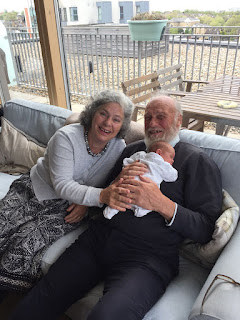 |
| Over the Cobbles. |
Fifty years later, our attitude would lead many people to dismiss us as 'socially conservative old foggies', or worse. However, insofar as there was something special in 'the spirit of the times' of the late sixties, a genuine revolution in the air which evidently failed, I claim that we remain basically true to it. This leads me to ask myself what, if anything, that essential 'it' was, and is it perhaps coming around again at last today?
Maybe the feeling that 'things just can't go on like this', the sense of an opportunity for humanity to take a great leap forward, perhaps circles our planet on an elliptic orbit, coming closer every so often. 1918? Maybe then too! But then it trundles off into outer space, and only a few 'dreamers' are left wondering, what was that? Will it ever come back again, that wonderful sense of opportunity? The heart of the matter is the belief that human beings may be finally freed from fear and oppression, freed to be their authentic selves.
These opportunities come with the rumble of empires crumbling down, the smash-up of the status quo; and with that comes much carnage and general horror. It takes a while for the dust to settle, so that we are able to figure out what still stands and what is gone for good, and so to get our bearings again. In some gilded halls, it is possible to carry on as if nothing has changed; but after all, bit by bit, things do!
We are inescapably members of some kind of greater whole; however, successive emperors are but passing attempts to personify it, and their turn comes to lose their clothes. We put up with them so long as they deliver the necessary modicum of bread and circuses to keep the show on the road. After all, so long as he manages to 'hold the ring' in the midst of the swirling masses of competing tribes, maintaining the conditions wherein at least the more enlightened (not to say privileged and influential) can trade, travel and generally do their thing, then he will be forgiven whatever demands he may make. But when this breaks down, the costs becomes too exorbitant and the price too onerous, he is a goner! So we have to look around for some new formula to integrate life's seething possibilities and demands. All too often, it is indeed the old case of plus ça change, plus c’est la même chose!
It is curious how personal morality gets bound up with the whole political and social order. Life becomes increasingly impossible on the personal and family level in step with political and social disintegration; it's almost as if we were all living at the Emperor's court. And when the court is one of those gilded halls that manages to hang on despite everything, quite out of sync with political and social reality, it's like being caught inside a circus tent that is in immanent danger of being blown down. For such reasons, I'm glad I 'escaped' from England when I did.
What of the Irish Revolution? Where has that got us? From one empire to another? A big question now is, how viable is this new 'empire', the European project? There are those who claim that Ireland's escape (and my personal one) will prove of the frying-pan to fire variety. We shall see, but meanwhile, here are a few signs that will give grounds to hope for the best: a successful Europe will lead the way in convincingly tackling the environmental crises on all fronts, including the human facets of migration, war etc, and also in reversing the tide of gross inequalities in wealth and power. Democracy and accountability will be more than empty catchwords; patient communication will replace braggart bullying. It will mysteriously, but as a matter of fact, be more convincing if accompanied by a renewal of personal integrity and morality. Banished words like adultery and fornication might even make a reappearance in the English language, not for reasons of oppression or repression, but because it is realised that they point up snags in the way of such genuine human fulfilment as is possible in this world, not to mention the next!
Yes, we also have to rediscover that this world is on a trip to some magnificent destiny beyond us all, which nonetheless is coming by way of increasing and more sophisticated integration, on both the personal and social levels. This is what we Catholics mean by 'the coming of the Kingdom', the establishment of 'his body' which we celebrate at every Mass, the 'true vine' of which we are the branches.... Any particular society succeeds or fails to the extent that it reflects such reality, and I remain convinced that the Irish version of revolution was relatively benign precisely because it did not altogether fail to
do so. Let us hope that it is not about to turn its back on that precious heritage!
















